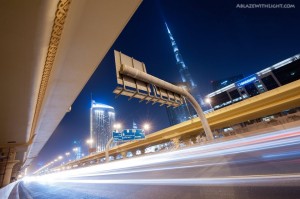 The local economy seems determined to maintain its recent upward momentum, as investor confidence returns and some core sectors start to recover. Nevertheless, concerns that disappointing performance of key trading partners and tight liquidity could hold back expansion remain.
The local economy seems determined to maintain its recent upward momentum, as investor confidence returns and some core sectors start to recover. Nevertheless, concerns that disappointing performance of key trading partners and tight liquidity could hold back expansion remain.
In September 2011, the UAE Central Bank said that GDP growth was likely to surpass the levels expected by the IMF earlier this year. Economists expressed opinions that as far as the forecasts for 2012 are concerned, the UAE economy may achieve better results than the IMF prediction of 3.5% growth.
Nevertheless, the UAE Central Bank noted that Dubai of all emirates could achieve growth of 4% or more this year, because its economy has recovered strongly from the effects of the global economic recession.
This estimate is supported by considerable signs of rebound and new growth. Real estate, once the main bearer for Dubai’s sustained economic growth, yet significantly influenced by the crisis, is demonstrating strives for revival. The drop in residential prices, which witnessed values in some segments fall by as much as 60%, seems to have come to an end, with prices either maintaining steady levels or making slight gains. Contrary to this tendency, villas have seen prices rise in 2012. The real estate prices and rents of apartments remain stable.
According to most analysts, it will be some time before the losses of the past few years are compensated, even though it appears that investors’ interest is gaining strenthg, with the value of property transactions in the second quarter amounting to $11.4bn, almost double that of the first three months of 2012.
While Dubai still has to deal with the aftermath of the global recession, the steady rebound of the economy is bringing confidence back in the markets due to the emirate’s ability to meet its obligations. On September 17, Dubai’s credit default swaps, which stand for the cost of insuring against default, were at 278 basis points, which is down to pre-crisis levels of September 2008. This is a clear sign that investors and ratings agencies have bigger faith in the ability of Dubai to deal with its high levels of debt.
Despite of the fact that Dubai’s economy is regaining momentum, many believe that it could be doing better if it wasn’t for regulatory restrictions and difficulty in accessing capital. Bank lending rose by only 1.8% in the first six months of 2012, compared to the 7% in Saudi Arabia and almost 14% in Qatar. A number of economists believe that the emirate could achieve better results. Lack of liquidity in the market still persists and even some companies hold of initial public offerings due to it.
Nevertheless, the local market is not yet ready to pour liquidity into investments and sustain active primary market. It may take another two to three years for reestablishing confidence. A market with good macroeconomic climate such as Dubai’s, liquidity is a primary condition that will make the difference between a speedy regeneration or not.
Another problem for the emirate will be the continuing debt crisis in the eurozone, one of its biggest export markets, which is the reason for just under one-third of shipments. Results issued on September 9 show that the value of the emirate’s shipments to Italy, Spain and Greece dropped by around 25% in the first half of this year. Although total exports to EU member states in fact increased by $136m to $1bn for the opening half of the year, with sales to Poland, Slovakia, Bulgaria, Lithuania and Estonia all up, a further downfall of economic conditions in the bloc will affect Dubai. The emirate’s small, but open economy relies primarily on trade, and weak activity in the eurozone will impact the performance of its exports and the re-exports.
Although Dubai will attempt to compensate the slowdown in exports to Europe, if trade with Europe decline as a result of the regional debt crisis along with growing sales to other markets, particularly in the MENA region and Asia, these economies will also decline. This could further impact the local economy.




































